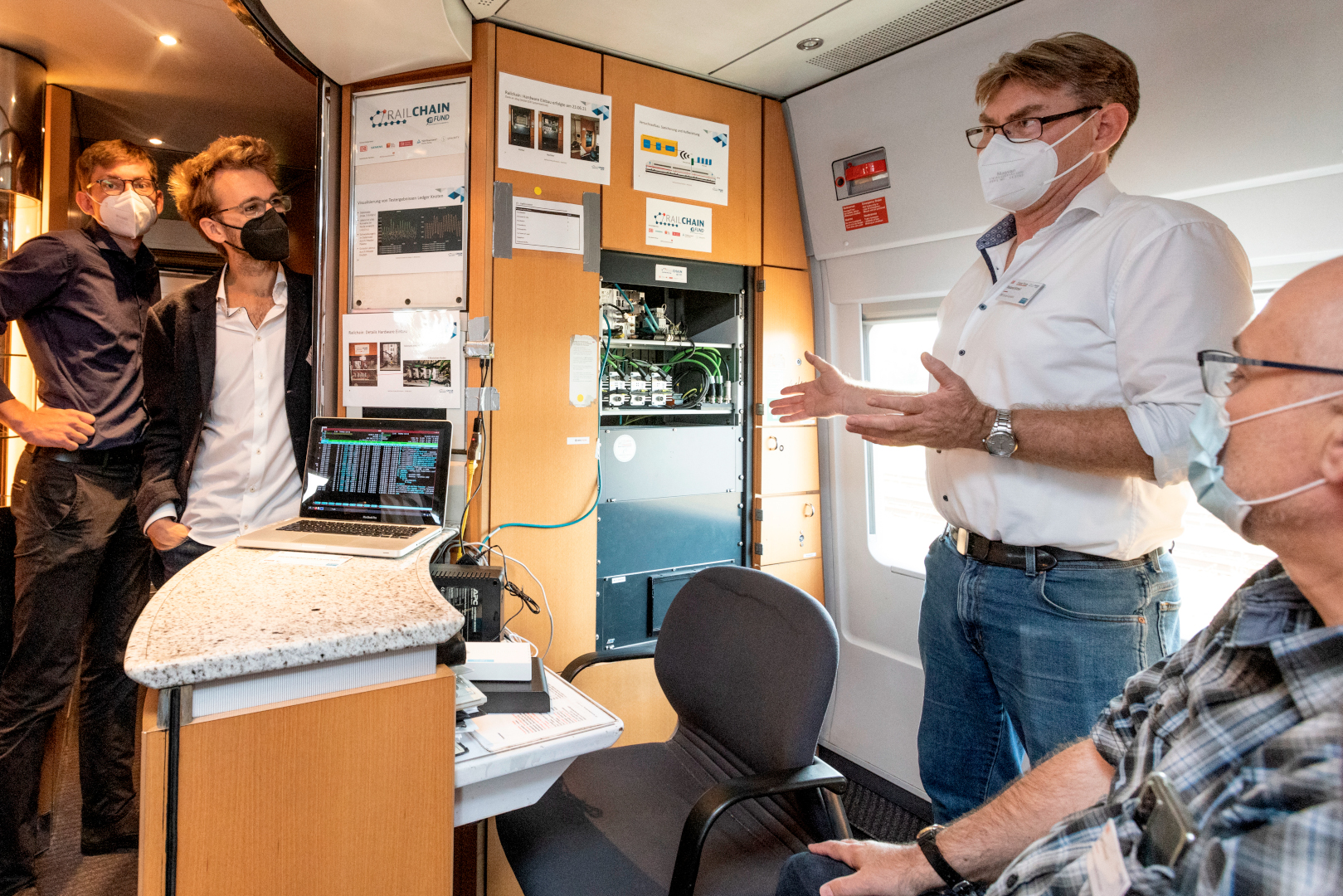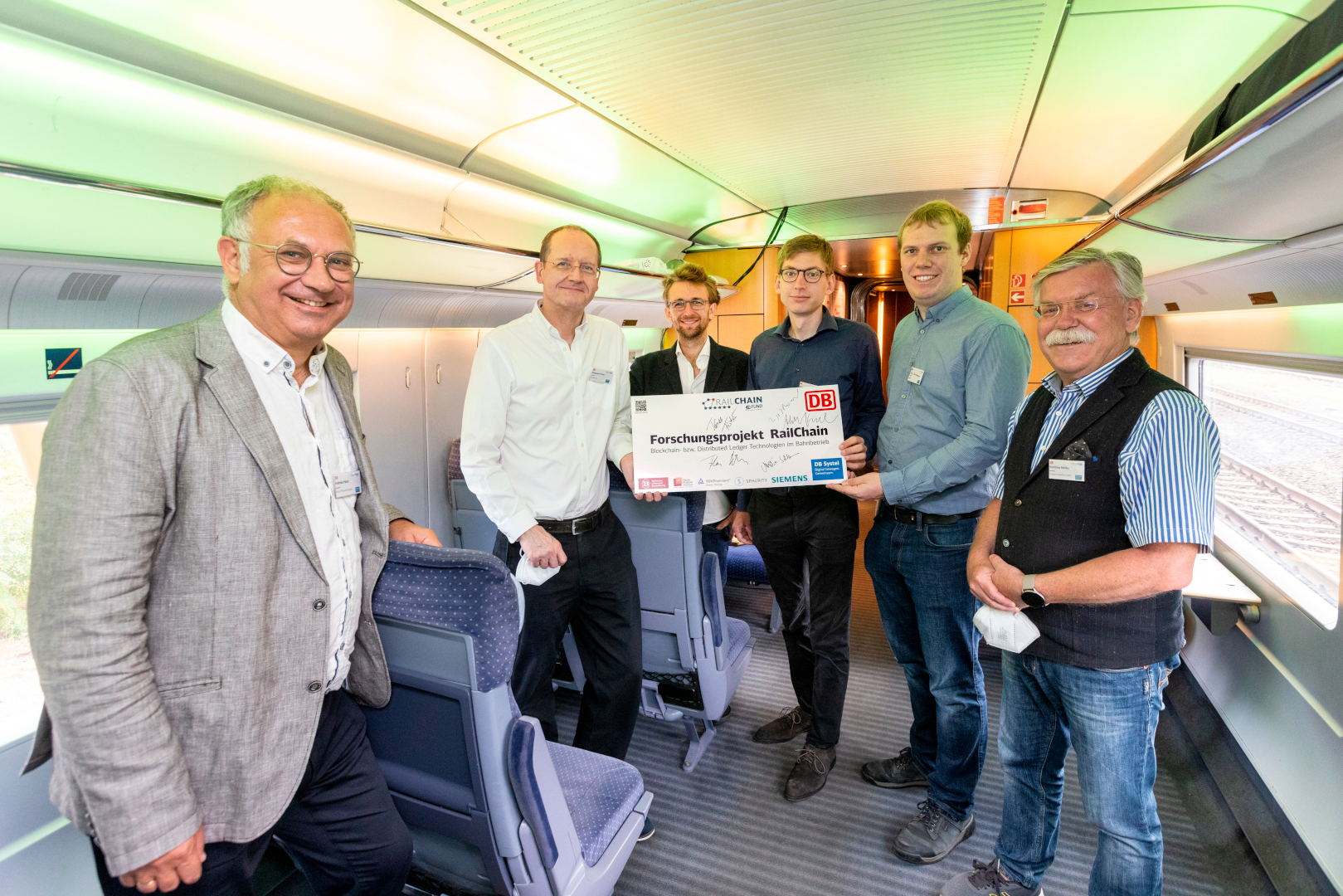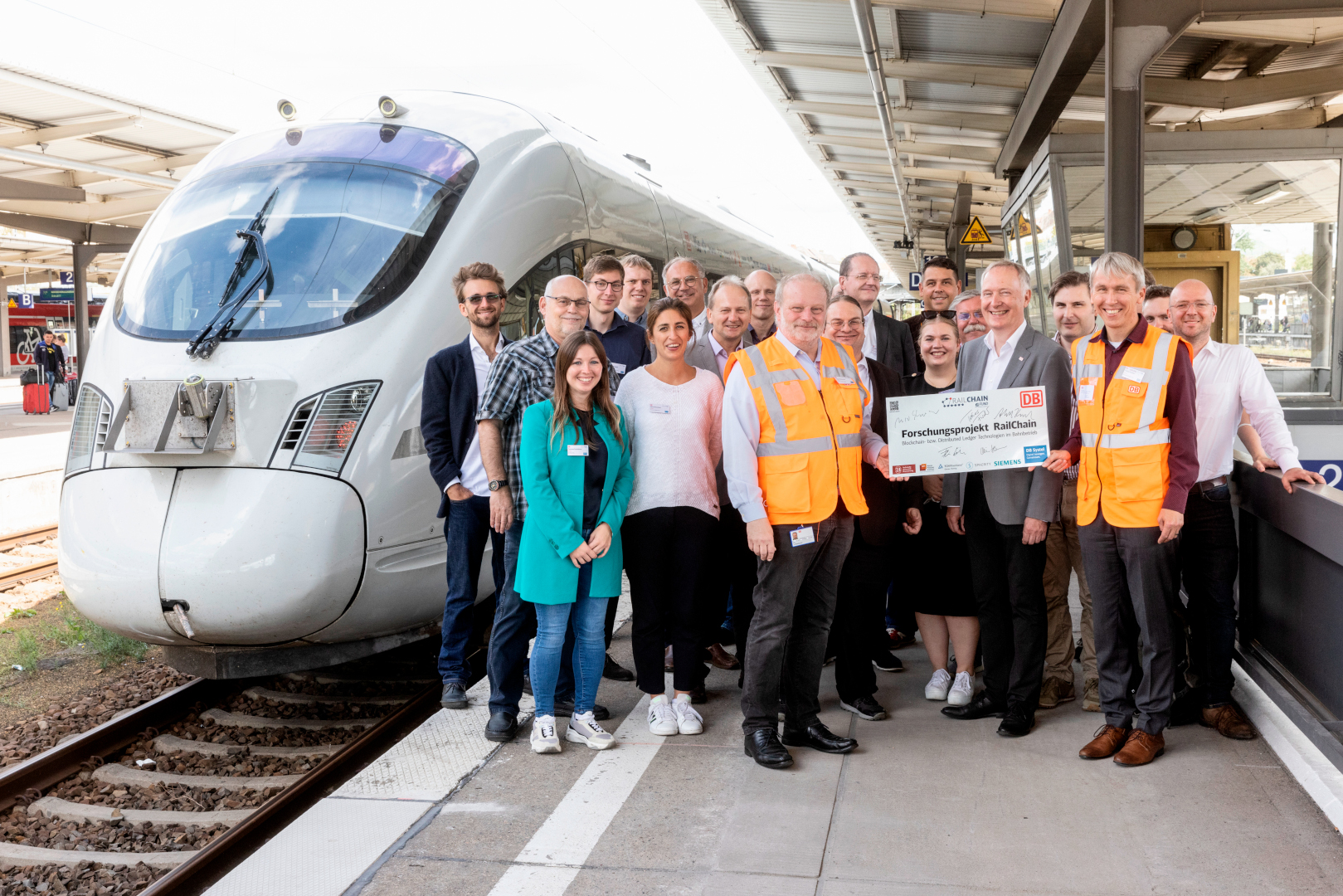RailChain: successful final presentations
OSM and partners demonstrated Blockchains for real-time railway applications
During the final presentation rides on the advanced TrainLab between August 29 and September 2, the RailChain project has been showcased to experts and representatives from politics, business, and academia.
RailChain explored the use of Distributed Ledger Technology (DLT) for tamper-proof digital identities and juridical data recording. In analogy to the juridical recorder (commonly referred to as black box) that exists on today's trains, a Juridical Blockchain Recorder (JBR) has been developed. A prototype could be permanently installed on the advanced TrainLab. RailChain not only met its project goals, made DLT useful for on-board railway applications, but also shined light on possibilities for open, cost-efficient, and vendor-independent digitalization in the railway sector.
DLTs are the basis for Blockchains – known from cryptocurrencies – and allow decentralized data storage with a high tolerance against faults and manipulation. These properties come at the cost of increased computational effort and thus increased latencies. To still meet the real-time requirements for juridical recording, domain-specific circumstances have been identified and incorporated in the design of specialized consensus protocols.
The OSM group contributed expertise in dependable distributed systems, for example with the assessment in lab, simulation, and field environments, as well as with integrating future on-board train communication technologies. Together with the students of the bachelor's project "Prellblock", an efficient implementation of a custom Blockchain for the project's use case has been contributed. Together with the students of the bachelor's project "The On-train IoT Middleware", future-oriented concepts for on-board applications beyond juridical recording have been explored and presented.
The project has been a cooperation of DB Systel, Siemens Mobility, the Professorship for Operating Systems and Middleware (HPI, University of Potsdam), the Institute of Operating Systems and Computer Networks (TU Braunschweig), the TÜV Rheinland InterTraffic, and Spherity. The project gratefully received a public funding over three years from the Modernitätsfond mFUND of the Federal Ministry for Digital and Transport (Bundesministeriums für Digitales und Verkehr, BMDV; formerly Bundesministerium für Verkehr und digitale Infrastruktur, BMVI).
For more information, please visit railchain.berlin.






